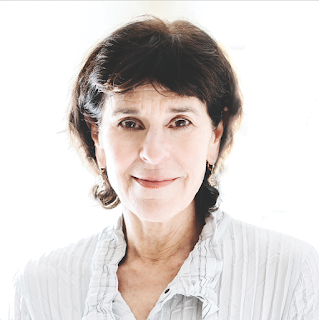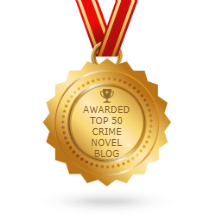SPOTLIGHT: A Perfect Eye by Stephanie Kane #aperfecteye #stephaniekane #coldhardpress
A Perfect Eye
by Stephanie Kane
Crime Fiction lovers - take note! Check out A Perfect Eye - synopsis, about the author below. Don't forget to continue to read the Author's Q&A - her funny story is quite a whopper!
Publisher: Cold Hard Press
Publish Date: September 1, 2019
Paperback
Crime Fiction
Some are born with a perfect palate, others with perfect pitch.
Denver Art Museum's Conservator of Paintings Lily Sparks was born with a perfect eye. When the museum's billionaire benefactor is brutally murdered, the grisly tableau stuns her: it's the human embodiment of the museum's prized landscape by famed Impressionist Gustave Caillebotte.
Lily comes to believe the Caillebotte was forged and the killer is a painter the art world spurned. But as she confronts where art ends and fraud begins, she must face the deceptions in her own past.
Stephanie Kane is a lawyer and award-winning author of four crime novels. Born in Brooklyn, she came to Colorado as a freshman at CU. She owned and ran a karate studio in Boulder and is a second-degree black belt. After graduating from law school, she was a corporate partner at a top Denver law firm before becoming a criminal defense attorney. She has lectured on money laundering and white collar crime in Eastern Europe, and given workshops throughout the country on writing technique. She lives in Denver with her husband and two black cats.
Extreme Indifference and Seeds of Doubt won a Colorado Book Award for Mystery and two Colorado Authors League Awards for Genre Fiction. She belongs to Mystery Writers of America, Rocky Mountain Fiction Writers and the Colorado Authors League.
What
does your writing process look like?
A herky-jerky scattershot mess. Seriously, it depends on what stage I’m
in. If I’m researching or outlining, I get totally immersed and can go for days
without being aware of time. Drafts are harder; I’m continually confronted with
the gap between what’s in my head and what I can capture on the page, and if I
get knocked off stride it’s tough to regain momentum. Once a first draft is
completed, I step back and take a breath. Revising is the most pleasurable part
of the process because it’s easier to fix what’s already there and I know I’m
making it better.
What
is the most difficult part of your writing process? Your writing Kryptonite?
Friends. Books I want to read. The news.
How
many hours a day do you write?
Five or six hours nonstop when I’m on a roll. I try to end on a high note
to give myself something to look forward to.
Do you
have any strange writing habits?
My rocket fuel is caffeine and physical exercise. On days when I’m trying
to get out a scene or a chapter, I rev up with a swim and coffee. If I meet my
goal, I reward myself by gardening, doing a crossword puzzle or reading the
newspaper.
What
is your least favorite part of the writing / publishing process? Favorite part?
My favorite part is the writing—if it’s going well. My least favorite is just
about anything to do with the publishing process.
Is
there one particular subject you would never write about as an author? What is
it?
Rape.
Is
there a type of scene that's harder for you to write than others?
Action scenes.
Does a
big ego help or hurt writers?
You need both. It takes a big ego to write but staying in the game
requires gobs of humility.
What
was an early experience where you learned that language had power?
My first grade teacher wrote two words on the blackboard: “some” and
“thing.” Then she combined them into one word: “something”. The ceiling cracked
open.
How
many unpublished/half-finished books do you have?
Three or four to which I’ll never return, one I may go back to but in a
very different form, and one I’m working on now.
How
long does it usually take you to write a book?
I used to be able to do one a year, but I’ve gotten slower. Life offers
too many distractions.
What
are you working on now? What is your next project?
I’m working on a mystery/thriller sequel to A PERFECT EYE. Same heroine
(paintings conservator Lily Sparks), different artist (Edward Hopper), and a
very different bad guy.
If you
could cast the characters of any of your books for a movie, who would play
your characters?
Lily would be played by Audrey
Hepburn or Claire Danes of TV’s Homeland.
Do you
read your reviews? Do you respond to them, good or bad? Any advice
on how to deal with the bad?
I do read my reviews—compulsively. I try to learn from them. Good or bad,
I write to serious reviewers thanking them for taking the time to read my
books. If you respond to drive-by shooters on Amazon, you never win.
If you
didn't like writing books, what would you do for a living?
I used to be a lawyer, so writing
books is pretty good!
What's
the best money you ever spent as a writer?
On a good freelance developmental editor. He helped me merge overlapping
timelines and whip a messy plotline into shape. That book didn’t sell, but I
learned more from writing it than all the others put together.
Have
you ever gotten reader's block? How did you get out of
it? (and yes, I meant reader's)
Life is too short to endlessly soldier on. I used to finish every book I
started, but now if I get reader’s block on a novel, I rarely feel guilty about
abandoning it. I read nonfiction because I’m interested in the subject, so
unless the writing is atrocious I usually finish it.
Do you
google yourself?
Seldom. Therein lie heartache and
madness!
As a
writer, what would you choose as your mascot/avatar/spirit animal?
I grew up with cats and am currently owned by two black ones. The ancient
Egyptians worshipped them for good reason.
What
literary character is most like you?
Gregor Samsa, who woke up one day as
a cockroach in Franz Kafka’s Metamorphosis.
What
authors have inspired you?
Dead and alive, fiction and nonfiction writers all over the map. For
crime writers I like Jim Thompson, Paul French, Denise Mina, Harry Maclean and
Mark Stevens. I also enjoy Ian McEwan and Margaret Atwood.
What's
one piece of advice you have received that has always resonated with you?
Treat writing as a job, and everyone
you meet professionally. The people you meet on
your way up are the same ones you’ll meet on your way down.
What's the funniest thing that has happened to you recently?
This isn’t the funniest, or the most recent. But it’s an ongoing source
of amusement.
Last year I fell
down a flight of stairs carrying laundry and ruptured a disc in my back.
Instead of surgery, I chose physical therapy. Fresh from an early morning swim,
I arrived at my first appointment and learned there was a copay. Rushing to my
car for my wallet, I ran full tilt into a glass wall in the lobby which I
thought was a door. I broke my nose and thought that was the end of it.
A week later I
was flossing and a corner of one of my molars broke off. In addition to my
nose, I’d broken two teeth. One got infected and required a root canal. On my first
visit to the endodontist, he broke his drill in my tooth and it took three
trips to get it out.
A few weeks ago,
after months of pain on one side of my head while I slept, I went to an ENT and
learned my jaw had also been dislocated. At that point I had to laugh.
The funny thing
is how my ordeal mirrors my writing process: the wonderful early industriousness
that leads to pratfalls and calamity, the denial over just how badly things are
going, the renewed energy—that heady surge—when you convince yourself things
are finally back on track, only to run into a physical or metaphorical wall
that reminds you the gods aren’t done screwing with you and your manuscript
yet. How many times can you drill into the same tooth? At least three, apparently.
So I turned it into a
workshop I’m delivering at the Rocky Mountain Fiction Writers Gold Conference
in September. I call it Revision: How I Learned To Love A Root Canal.






No comments
Leave a Comment